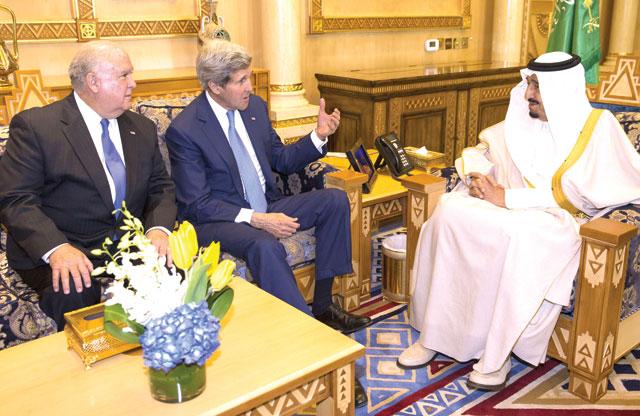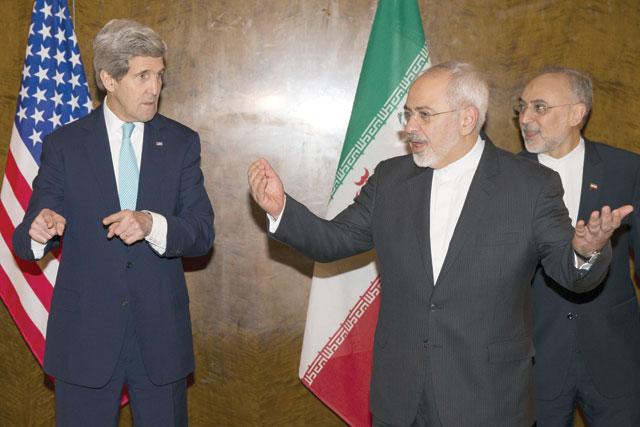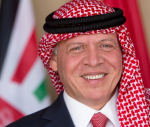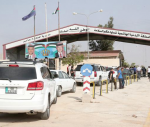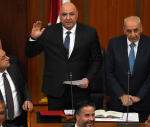You are here
Kerry visits Riyadh to soothe fears of stronger Iran under nuclear deal
By Reuters - Mar 03,2015 - Last updated at Mar 03,2015
MONTREUX, Switzerland/RIYADH — US Secretary of State John Kerry flies to Riyadh this week to reassure King Salman that any nuclear deal with Iran is in Saudi Arabia's interest, despite the country's fears it may boost its rival's support for Shiite Muslim interests in the region.
Convincing Saudi Arabia to accept any agreed nuclear deal is important to President Barack Obama because he needs Riyadh to work closely with Washington on a host of regional policies and to maintain its role as a moderating influence in oil markets.
The main critics of the US push for a nuclear deal are Israel and congressional Republicans. But Saudi Arabia is sceptical too that any agreement would only let Iran devote more cash and energy to Shiite proxies in Syria, Iraq, Lebanon and Yemen, escalating conflicts.
"The Saudis fear Obama will give the Iranians a deal whatever the cost because it is important for his legacy, and that Iran will get a certain regional status in exchange for an agreement," said a diplomat in the Gulf.
Kerry met Iranian Foreign Minister Mohammad Javad Zarif in Montreux, Switzerland, on Monday at the start of up to three days of negotiations to try to meet a self-imposed deadline to achieve a framework agreement by the end of March.
He will then brief Saudi Arabia's new king on the talks, and meet other senior Gulf officials later in the week, in an attempt to convince them that a diplomatic solution to the long-festering crisis over Iran's atomic programme is in that country's interest too.
Saudi's anxiety about an agreement has fuelled a flurry of diplomacy in recent days to bolster unity among Sunni states in the Middle East in the face of shared threats including Iran, analysts say.
Washington shares Arab concerns about Iran's role, particularly in Syria and Yemen and through its ties to Lebanon's Hizbollah militia, a senior Obama administration official said, on condition of anonymity, but added that there was a "very substantial" US military commitment to Gulf allies.
"What we need to do is have the appropriate strategies to counter any provocative and destabilising behaviour... it's going to depend on what can we do effectively in places like Syria and Yemen," he said.
Anxious
US officials are unwilling, however, to outline what strategies might curb Iran's regional influence, and Washington's record in Iraq, Syria and Yemen — where armed Iranian allies have since flourished — has caused Saudi Arabia great anxiety.
The country's trust in Washington during the Iran talks is also still recovering from the sudden move in late 2013 towards a nuclear deal, when Saudi officials were blindsided by the revelation of months of secret talks between the US and Iran.
"They are very, very nervous about the way we are moving forward," said a Western diplomat who tracks the issue closely and said Riyadh feared a "lose-lose situation" in which Iran either gained an atomic weapon or was freed from sanctions.
Riyadh has long been worried about Iran gaining nuclear weapons capability, something that once led King Abdullah to ask Washington to "cut off the head of the snake" by striking Iran, diplomatic cables released by WikiLeaks showed.
But it now sees Iran's involvement in Arab countries, particularly its backing of Syrian President Bashar Assad, its support for Iraqi Shiite militias and its ties to the Houthi group that has seized control in northern Yemen, as a more urgent problem.
A senior State Department official told Reuters: "Secretary Kerry will make clear we understand the concerns they have about the region's security, concerns that we also share."
Meanwhile, King Salman is working to forge a united front among Sunni states against what Riyadh sees as the dual threat from Iran and
Daesh, analysts say.
Over the past week King Salman has met the leaders of all Saudi Arabia's Gulf Arab neighbours, His Majesty King Abdullah and the presidents of Egypt and Turkey, the two most populous and militarily powerful Sunni states in the region.
"The understanding is we will face a more aggressive Iran if they sign an agreement. All the restrictions on it will be lifted and it will be much stronger. This is an issue that needs some sort of unity," said Mustafa Alani, an Iraqi security analyst with ties to the Kingdom's Interior Ministry.
Related Articles
US Secretary of State John Kerry told Gulf Arab states on Thursday Washington was not seeking a "grand bargain" with Iran, and said a nuclear deal with Tehran would be in their interests.
Simply demanding Iran's capitulation is no way to get a nuclear deal with the Islamic Republic, US Secretary of State John Kerry said on Wednesday as he wrapped up three days of talks with a veiled dig at Israeli Prime Minister Benjamin Netanyahu.
The United States will "confront aggressively" Iran's bid to expand its influence across the Middle East even if a nuclear deal is reached, a State Department official said Tuesday.


